January 31, 2017 •
Tuesday’s Government Relations and Ethics News
Lobbying “Trump’s Trade Pick May Face Hurdle Over Past Lobbying for Brazil” by Bill Allison for Bloomberg.com “Trump Ethics Rules Curtail Lobbyists, While Also Loosening Some Obama Restrictions” by Matea Gold for Washington Post Tennessee: “In Tennessee, Lobbyists’ Employers Face […]
 Lobbying
Lobbying
“Trump’s Trade Pick May Face Hurdle Over Past Lobbying for Brazil” by Bill Allison for Bloomberg.com
“Trump Ethics Rules Curtail Lobbyists, While Also Loosening Some Obama Restrictions” by Matea Gold for Washington Post
Tennessee: “In Tennessee, Lobbyists’ Employers Face Few Disclosure Rules” by Dave Boucher for The Tennessean
Campaign Finance
“Trudeau to End Controversial Cash-for-Access Fundraisers” by Robin Fife and Steven Chase for The Globe and Mail
Ethics
“Countries Where Trump Does Business Are Not Hit by New Travel Restrictions” by Rosalind Helderman for Washington Post
Missouri: “On the Trail: Greitens banking on lawmakers to pass tighter ethics rules” by Jason Rosenbaum for St. Louis Public Radio
Oklahoma: “Evidence Shows EMSA Had Contractor Make Political Donations, Government Says” by Nolan Clay for The Oklahoman
Elections
“Koch Network Could Serve as Potent Resistance in Trump Era” by Matea Gold and James Hohmann for Washington Post
“As Democrats Take to the Streets, Lawmakers Rush to Keep Up” by Jonathan Martin for New York Times
January 17, 2017 •
Corpus Christi Considering New Ethics Code Recommendations
Corpus Christi, Texas City Council will meet Tuesday to discuss new recommendations to the ethics code to further tighten rules for City Council members. The Council unanimously approved the new code during a first vote last week. If approved on […]
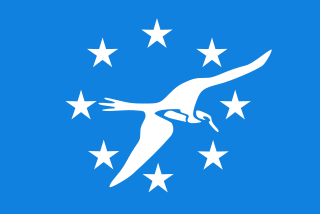 Corpus Christi, Texas City Council will meet Tuesday to discuss new recommendations to the ethics code to further tighten rules for City Council members. The Council unanimously approved the new code during a first vote last week.
Corpus Christi, Texas City Council will meet Tuesday to discuss new recommendations to the ethics code to further tighten rules for City Council members. The Council unanimously approved the new code during a first vote last week.
If approved on the second vote, it will be formally adopted by City Council. If adopted, the modified code would ban council members from appointing people to city committees and boards if the appointee contributed more than $2,700 to the council member’s campaign in the previous election. This would not ban the contributor from appointment, but would require a council member who did not receive contributions meeting the threshold to appoint the person.
Additionally, the prospective code broadens who falls within what is called the circle of influence and indicates a conflict of interest if a person with a specific relationship to a council member would profit from a council member’s vote. The current circle of influence includes direct family members but could be expanded to cover employers of family members and household members if the new code is adopted.
January 16, 2017 •
Monday Government Relations News Roundup
Lobbying Florida: “NRA’s Influence with Florida Lawmakers Is Powerful” by Steve Bousquet (Tampa Times) for Bradenton Herald Campaign Finance “Trump Tweet About L. L. Bean Underscores Potential Danger for Brands” by Daniel Victor for The New York Times California: “State […]
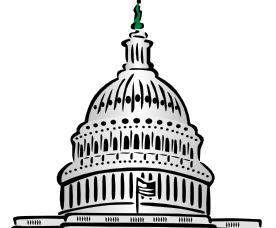 Lobbying
Lobbying
Florida: “NRA’s Influence with Florida Lawmakers Is Powerful” by Steve Bousquet (Tampa Times) for Bradenton Herald
Campaign Finance
“Trump Tweet About L. L. Bean Underscores Potential Danger for Brands” by Daniel Victor for The New York Times
California: “State Watchdog Agency Investigating after Times Report on Political Donations” by Emily Alpert Reyes and David Zahniser for Los Angeles Times
District of Columbia: “In a City Plagued by Pay-to-Play Politics, an Important Decision Looms for D.C.” by Aaron Davis for The Washington Post
Washington: “Lawmakers in Olympia Seek New Campaign-Disclosure and Ethics Rules” by Joseph O’Sullivan for Seattle Times
Ethics
“After Trump Rebuke, Federal Ethics Chief Called to Testify Before House Lawmakers” by Lisa Rein, Tom Hamburger, and Mike DeBonis for The Washington Post
Maryland: “Democrat Michael Vaughn of Prince George’s Resigns from State Legislature” by Ovetta Wiggins for The Washington Post
Montana: “Republican Lawmakers Try to Cut Off Campaign Regulator’s Pay” by Matt Volz (Associated Press) for SF Gate
Tennessee: “House Lawmakers Must Disclose Political Junkets” by Joel Ebert for The Tennessean
Texas: “Top House Republican Says Dark Money Debate Won’t Kill Ethics Reform” by Jay Root for Texas Tribune
January 13, 2017 •
FEC Unable to Agree on Rulemaking Concerning Foreign Influence on Political Spending
On January 12, the Federal Election Commission (FEC) was unable to agree on a policy to clarify when and if a U.S. domestic subsidiary corporation of a foreign national is illegally involved in political activity. Federal law prohibits foreign nationals from […]
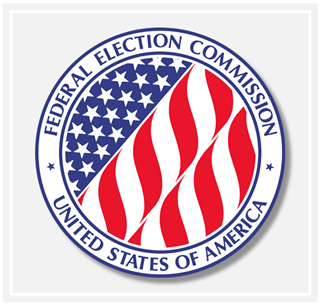 On January 12, the Federal Election Commission (FEC) was unable to agree on a policy to clarify when and if a U.S. domestic subsidiary corporation of a foreign national is illegally involved in political activity.
On January 12, the Federal Election Commission (FEC) was unable to agree on a policy to clarify when and if a U.S. domestic subsidiary corporation of a foreign national is illegally involved in political activity.
Federal law prohibits foreign nationals from directly or indirectly making contributions, donations, expenditures, independent expenditures, and disbursements in connection with federal, state, or local elections. FEC regulations also prohibit foreign nationals from directing, controlling, or participating in the decision-making process of any person, such as a corporation, with regards to decisions concerning the making of contributions, donations, expenditures, or disbursements in connection with elections in the U.S.
Additionally, the FEC was unable to reach an agreement on the creation of a safe harbor for political committees to accept corporate contributions deemed not to have come from foreign national sources.
In response, Vice Chair Caroline C. Hunter and Commissioners Matthew S. Petersen and Lee E. Goodman issued a statement.
A previous attempt to reach an agreement on this issue in September also failed.
January 11, 2017 •
Bills Aim to Reduce Pay-To-Play Politics in D.C.
On Tuesday, January 10, the D.C. Council introduced several bills aimed at limiting big donors’ influence and increasing transparency in campaign fundraising. Citizens have accused Mayor Muriel E. Bowser, a Democrat, of participating in pay-to-play politics. One of the bills […]
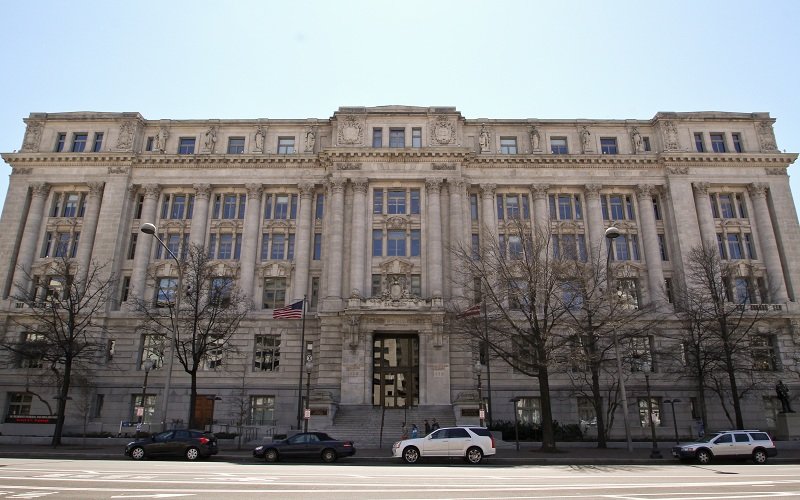
On Tuesday, January 10, the D.C. Council introduced several bills aimed at limiting big donors’ influence and increasing transparency in campaign fundraising. Citizens have accused Mayor Muriel E. Bowser, a Democrat, of participating in pay-to-play politics.
One of the bills introduced would block contractors from city business for two years following a political contribution to a candidate or political committee.
Bill 22-0038 would increase the number of lobbying reports by requiring monthly filings. Currently, reports are due twice a year.
January 3, 2017 •
Effective January 1, Corporations Prohibited from Making Political Contributions in Ontario, Canada
On January 1, the Election Finances Statute Law Amendment Act took effect, prohibiting political contributions from corporations and labor unions and lowering the province’s contribution limits from individuals. The new law also prohibits all provincial politicians, candidates, and senior political […]
 On January 1, the Election Finances Statute Law Amendment Act took effect, prohibiting political contributions from corporations and labor unions and lowering the province’s contribution limits from individuals.
On January 1, the Election Finances Statute Law Amendment Act took effect, prohibiting political contributions from corporations and labor unions and lowering the province’s contribution limits from individuals.
The new law also prohibits all provincial politicians, candidates, and senior political staffers from attending fundraising events, with certain exceptions.
Third-parties, who currently face no spending restrictions on advertising, are now limited to $100,000 per election period and $600,000 in the six months before a general election is called.
December 29, 2016 •
Businesses Sue Over Missouri Constitutional Amendment 2
Constitutional Amendment 2, a reform measure approved in November, is facing a second legal challenge in federal court from plaintiffs who claim the amendment unconstitutionally restricts free speech and association. The suit was filed by Farmers State Bank and Herzog […]
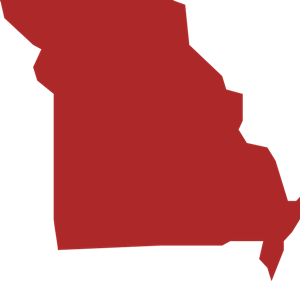 Constitutional Amendment 2, a reform measure approved in November, is facing a second legal challenge in federal court from plaintiffs who claim the amendment unconstitutionally restricts free speech and association.
Constitutional Amendment 2, a reform measure approved in November, is facing a second legal challenge in federal court from plaintiffs who claim the amendment unconstitutionally restricts free speech and association.
The suit was filed by Farmers State Bank and Herzog Services, with additional plaintiffs including the American Democracy Alliance, Missourians for Worker Freedom, Freedom PAC, the Free and Fair Election Fund, and John Elliott, a citizen. Plaintiffs contend the amendment’s contribution restrictions impermissibly prohibit corporate (including nonprofit) contributions in ballot measure and judicial retention campaigns.
A separate suit was filed by the Association of Missouri Electrical Cooperatives earlier in December.
December 9, 2016 •
South Dakota’s Initiated Measure 22 Put on Hold
A South Dakota judge has issued a preliminary injunction on Initiated Measure 22. Initiated Measure 22 was approved by the majority of South Dakota voters last month as an act to revise campaign finance and lobbying laws. The injunction will […]
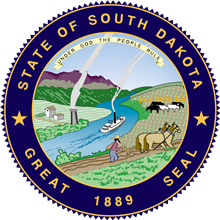 A South Dakota judge has issued a preliminary injunction on Initiated Measure 22. Initiated Measure 22 was approved by the majority of South Dakota voters last month as an act to revise campaign finance and lobbying laws.
A South Dakota judge has issued a preliminary injunction on Initiated Measure 22. Initiated Measure 22 was approved by the majority of South Dakota voters last month as an act to revise campaign finance and lobbying laws.
The injunction will give the courts and the Legislature time to consider the measure, which has been widely criticized as being poorly drafted and possibly unconstitutional. Supporters of Initiated Measure 22 are expected to ask the judge to re-instate portions of the law not challenged by the plaintiffs, such as the provisions dealing with lower caps on campaign contributions.
December 8, 2016 •
Lawsuit Filed Challenging Missouri Campaign Finance Changes
The Association of Missouri Electrical Cooperatives filed suit Wednesday morning in federal district court challenging changes to campaign finance laws that became effective December 8. Voters approved the changes via a constitutional amendment on the November ballot. Among other things, […]
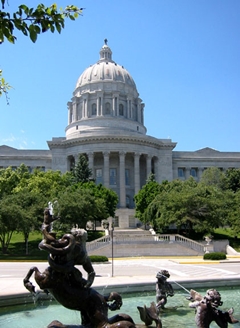 The Association of Missouri Electrical Cooperatives filed suit Wednesday morning in federal district court challenging changes to campaign finance laws that became effective December 8.
The Association of Missouri Electrical Cooperatives filed suit Wednesday morning in federal district court challenging changes to campaign finance laws that became effective December 8.
Voters approved the changes via a constitutional amendment on the November ballot. Among other things, the amendment establishes contribution limits for individuals and entities supporting statewide and judicial candidates, as well as prohibits certain corporate and labor union contributions.
The Association of Missouri Electrical Cooperatives unsuccessfully attempted to block the statewide referendum prior the November election; an appeals court stopped its lawsuit because it would not consider campaign restrictions not yet in effect. The new suit alleges the campaign finance changes violate free speech rights as they unfairly limit some businesses and associations from participating in political campaigns.
December 7, 2016 •
Maine Ethics Commission Proposes Potential Legislation
The staff of the Maine Ethics Commission (MEC) will propose legislation to the Commission on Governmental Ethics and Election Practices at a meeting on December 8, 2016, to enhance the public’s understanding of major contributors to political committees. The statutory […]
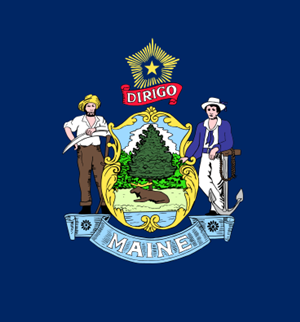 The staff of the Maine Ethics Commission (MEC) will propose legislation to the Commission on Governmental Ethics and Election Practices at a meeting on December 8, 2016, to enhance the public’s understanding of major contributors to political committees.
The staff of the Maine Ethics Commission (MEC) will propose legislation to the Commission on Governmental Ethics and Election Practices at a meeting on December 8, 2016, to enhance the public’s understanding of major contributors to political committees.
The statutory proposal would require national organizations contributing more than $100,000 to Maine-based political committees to file a one-time report with MEC detailing basic contact information about the national organization, a responsible officer, the form of the organization, and a description of its purpose. The report would require the organization to provide the top five sources of funding received during the previous 12 months. Failure to file a report could result in a $50,000 penalty.
If the statutory proposal is approved by the commissioners, it would then go to the Legislature for consideration.
December 5, 2016 •
Washington’s Session Freeze on Contributions Begins December 10
The regular legislative session is fast approaching and is set to convene January 9, 2017. With 30 days before the official start date, December 10, 2016, will mark the date legislators and state executive officeholders may not solicit or accept […]
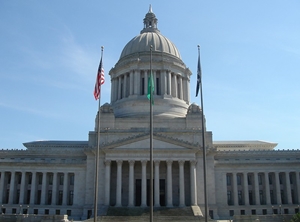 The regular legislative session is fast approaching and is set to convene January 9, 2017. With 30 days before the official start date, December 10, 2016, will mark the date legislators and state executive officeholders may not solicit or accept campaign contributions until the session adjourns.
The regular legislative session is fast approaching and is set to convene January 9, 2017. With 30 days before the official start date, December 10, 2016, will mark the date legislators and state executive officeholders may not solicit or accept campaign contributions until the session adjourns.
Candidates may accept contributions that were made on December 9 or earlier, including contributions that were mailed and bear a December 9 postmark.
December 1, 2016 •
Ontario Passes Campaign Finance Reform Bill
The Election Finances Statute Law Amendment Act was passed by the Legislative Assembly on December 1, 2016. It was introduced after an investigation into pay-to-play fundraising and cash for access scandals. The investigation revealed that corporations and lobbyists had spent […]
 The Election Finances Statute Law Amendment Act was passed by the Legislative Assembly on December 1, 2016. It was introduced after an investigation into pay-to-play fundraising and cash for access scandals.
The Election Finances Statute Law Amendment Act was passed by the Legislative Assembly on December 1, 2016. It was introduced after an investigation into pay-to-play fundraising and cash for access scandals.
The investigation revealed that corporations and lobbyists had spent up to $10,000 to buy time with cabinet members in seeking policy decisions and contracts. The new amendment will prohibit all provincial politicians, candidates, and senior political staffers from attending fundraising events and ban contributions from corporations and unions.
In addition to these prohibitions, donations from individuals are limited to $1,200 per political party annually, down from $9,975 under the current system. Third-parties, who currently face no spending restrictions on advertising, will be capped at $100,000 per election period and $600,000 in the six months before a general election is called. A spending cap will also be placed on political party advertising at $1 million in the six months before a general election is called.
The bill was passed despite negative feedback regarding loopholes in the legislation. It will go into effect on January 1, 2017.
November 22, 2016 •
FPPC Approves Amendments to Increase Gift and Campaign Contribution Limits
On Nov. 17, California’s Fair Political Practices Commission (FPPC) approved regulations to make biennial cost of living adjustments to campaign contribution and gift limits that will apply from Jan. 1, 2017, through Dec. 31, 2018. The newly amended regulations change […]
 On Nov. 17, California’s Fair Political Practices Commission (FPPC) approved regulations to make biennial cost of living adjustments to campaign contribution and gift limits that will apply from Jan. 1, 2017, through Dec. 31, 2018.
On Nov. 17, California’s Fair Political Practices Commission (FPPC) approved regulations to make biennial cost of living adjustments to campaign contribution and gift limits that will apply from Jan. 1, 2017, through Dec. 31, 2018.
The newly amended regulations change the gift limit from $460 to $470 and makes increases to campaign contribution limits.
November 17, 2016 •
Gov. Cuomo to Address Ethics Concerns
On November 16, 2016, Gov. Andrew Cuomo released a statement proposing plans to limit campaign contributions and close loopholes for those doing business with the state. In response to contracting scandals at state universities, Cuomo intends to appoint inspectors general […]
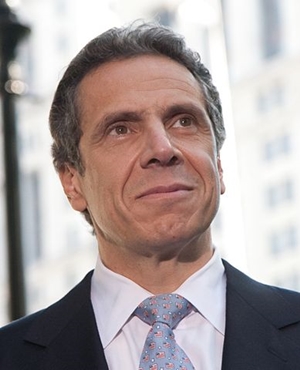 On November 16, 2016, Gov. Andrew Cuomo released a statement proposing plans to limit campaign contributions and close loopholes for those doing business with the state.
On November 16, 2016, Gov. Andrew Cuomo released a statement proposing plans to limit campaign contributions and close loopholes for those doing business with the state.
In response to contracting scandals at state universities, Cuomo intends to appoint inspectors general to investigate fraud and abuse at the State University of New York and the City University of New York.
Furthermore, Cuomo will appoint a chief procurement officer to review all state contracts and grants for the purpose of re-establishing public trust. The entire statement can be accessed here.
Photo of Governor Cuomo courtesy of Pat Arnow on Wikipedia.
State and Federal Communications, Inc. provides research and consulting services for government relations professionals on lobbying laws, procurement lobbying laws, political contribution laws in the United States and Canada. Learn more by visiting stateandfed.com.

